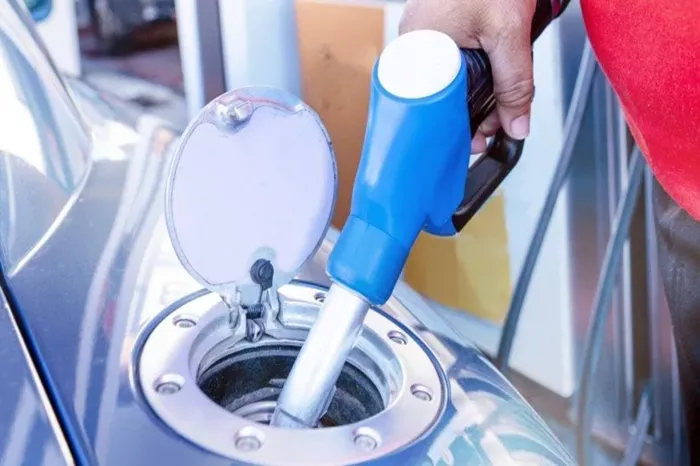Blue gasoline is a term gaining attention in the fuel industry, often associated with sustainability and reduced carbon emissions. This article dives into the details of what blue gasoline is, how it differs from conventional gasoline, its production process, environmental benefits, and potential implications for the future of automotive fuels.
Understanding Blue Gasoline
Definition and Composition
Definition: Blue gasoline refers to a variant of gasoline that incorporates renewable or low-carbon sources in its production process.
Composition: It blends traditional gasoline components with renewable hydrocarbons or synthetic fuels derived from sources like biomass, waste oils, or captured CO2.
Production Process
Renewable Sources: Produced from biomass, such as agricultural residues, forestry waste, or algae, through processes like gasification or fermentation.
Synthetic Fuels: Synthetic pathways involve converting CO2 and hydrogen into liquid hydrocarbons through chemical processes like Fischer-Tropsch synthesis.
Benefits of Blue Gasoline
Reduced Carbon Footprint: Lower greenhouse gas emissions compared to conventional gasoline, contributing to climate change mitigation efforts.
Compatibility: Can be used in existing gasoline engines and infrastructure without requiring modifications or new vehicle technologies.
Energy Security: Diversifies fuel sources, potentially reducing dependence on fossil fuels while utilizing renewable resources.
Environmental Impact
Emissions Reduction: Decreases CO2 emissions by utilizing carbon-neutral or low-carbon feedstocks in production.
Air Quality: Improves local air quality by reducing emissions of pollutants such as particulate matter and nitrogen oxides (NOx).
Challenges and Considerations
Scalability: Scaling up production to meet global fuel demands while maintaining cost-effectiveness and supply chain reliability.
Regulatory Framework: Adapting regulatory frameworks to recognize and incentivize low-carbon fuels like blue gasoline to promote adoption.
Applications and Future Outlook
Automotive Industry: Potential integration into mainstream fuel markets to reduce vehicle emissions and comply with stringent environmental regulations.
Research and Development: Continued innovation in production technologies and feedstock utilization to enhance efficiency and sustainability.
See also: 3 Types Of Fuel Oils & What They’re Used For
Comparing Blue Gasoline with Conventional Gasoline
1. Environmental Impact
Blue Gasoline: Lower carbon emissions due to renewable or low-carbon feedstocks.
Conventional Gasoline: Higher carbon footprint from fossil fuel extraction and combustion.
2. Production Methods
Blue Gasoline: Uses biomass, waste oils, or synthetic pathways to produce fuels.
Conventional Gasoline: Derived from crude oil refining, primarily non-renewable sources.
3. Usage and Compatibility
Blue Gasoline: Compatible with existing gasoline engines and infrastructure.
Conventional Gasoline: Standard fuel for gasoline-powered vehicles worldwide.
Conclusion
Blue gasoline represents a promising step towards sustainable fuel solutions in the automotive industry, offering reduced carbon emissions and environmental benefits compared to conventional gasoline. By integrating renewable or low-carbon feedstocks into its production process, blue gasoline supports global efforts to combat climate change and improve air quality without requiring significant infrastructure changes or vehicle modifications.
As research and development continue to advance in the field of alternative fuels, blue gasoline stands out as a viable option to meet both regulatory requirements and consumer demand for cleaner, greener energy solutions. Understanding its composition, benefits, and potential challenges helps stakeholders, policymakers, and consumers navigate the evolving landscape of automotive fuels, paving the way towards a more sustainable future.
FAQ About Blue Gasoline
1.What does blue gasoline mean?
Blue gasoline refers to a variant of gasoline that incorporates renewable or low-carbon sources in its production process. It is designed to reduce greenhouse gas emissions compared to conventional gasoline by utilizing sustainable feedstocks such as biomass, waste oils, or synthetic fuels derived from captured CO2.
2.What is blue gas used for?
Blue gasoline is primarily used as a fuel for internal combustion engines, similar to conventional gasoline. It can be used in existing gasoline-powered vehicles without requiring modifications or new infrastructure, making it a potential alternative to reduce carbon emissions in the transportation sector.
3.What octane is blue fuel?
The octane rating of blue gasoline can vary depending on its formulation and production process. Typically, it is designed to meet the octane requirements similar to conventional gasoline, which ranges from regular (87 octane) to premium (91 octane or higher) depending on the market and specific blend.
4.Can you mix blue gas with regular gas?
In most cases, blue gasoline can be mixed with regular gasoline without significant issues, as long as both fuels are compatible and have similar properties. Mixing fuels should be done cautiously to ensure proper engine performance and adherence to manufacturer recommendations.
5.Is Blue Gas bad for the Environment?
Blue gasoline is generally considered better for the environment compared to conventional gasoline due to its lower carbon footprint. By incorporating renewable or low-carbon sources in its production, it reduces greenhouse gas emissions and contributes to mitigating climate change. However, like any fuel, its environmental impact can vary based on factors such as feedstock sourcing, production methods, and local regulations.
Related topics:

